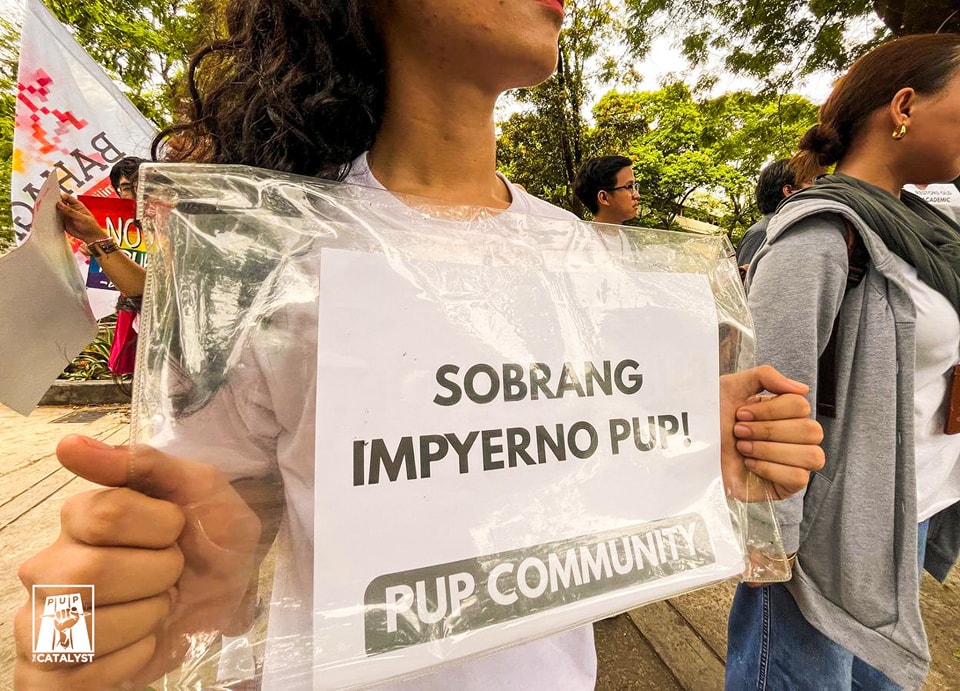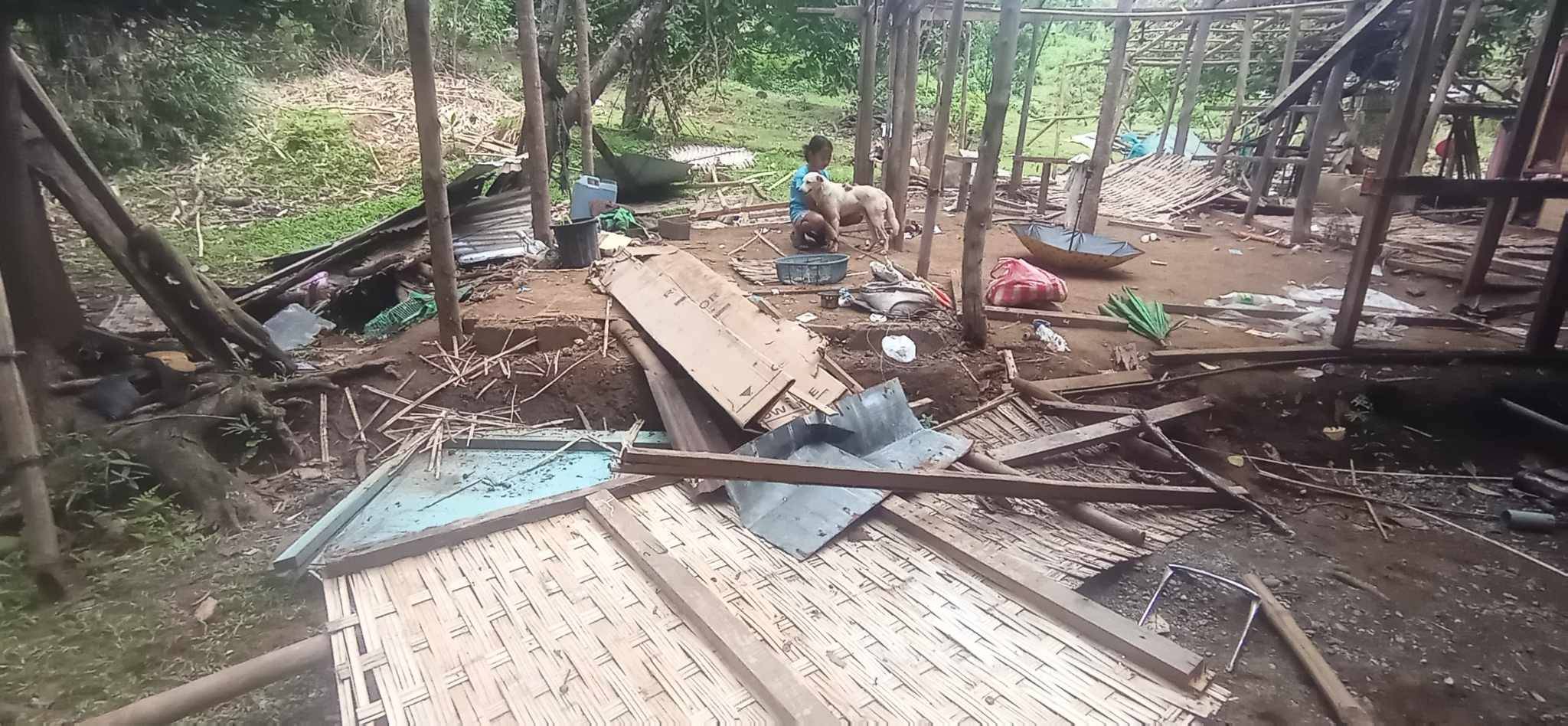Students from Bulacan State University (BulSU) Malolos and Polytechnic University of the Philippines (PUP) Sta. Mesa called on their university administrations to replace current heat index suspension guidelines currently marred by unclear applications.
The BulSU administration did not heed the calls of the school’s student government to announce asynchronous classes, despite their own guidelines requiring general education courses to be held online when the heat index reached 33°C for Malolos on May 5 and 6.
The student council later discovered that the reason for the non-suspension of face-to-face classes was for a press conference of the Alyansa para sa Bagong Pilipinas senatorial slate at the school the next day, May 7, which was promptly protested by students.
“Parang Monday or Tuesday pa lang kinakausap na ang BulSU admin na i-suspend nga ang classes. Tapos biglang noong Tuesday namin nalaman ng gabi na confirmed na pupunta nga yung Alyansa. I think it’s really connected sa issue na yun that time na hindi nila sinuspend agad yung classes,” BulSU Student Government Vice President Lovely Vasquez told the Collegian.
The Facebook post containing the supposed heat index guidelines, which was deleted by the administration days before Alyansa’s press conference, mandated all classes at the university to shift to asynchronous learning once the heat index level reaches 41-51°C.
The deleted Facebook post by the BulSU Office of the Vice President for Academic Affairs, containing the supposed university response for corresponding heat index levels. (Copy from the Katipunan Student Movement BulSU).
But guidelines remain arbitrary depending on each university administration. In PUP Sta. Mesa, in-person activities like laboratory classes, field studies, and departmental examinations are allowed, even during “Danger” level heat (42°C), once approved by the concerned dean and the vice president of academic affairs, according to a university executive order.
“Kapag nag-request ang mga professor namin na gusto nilang mag-face-to-face, tapos pumalo ng 43°C, magpapa-face-to-face kahit sa kalagitnaan ng mainit na lagay ng panahon. Ang malala dito, nagpapa-face-to-face without proper guidelines or wala talaga silang letter na sinubmit sa admin at sa dean nila,” CJ Diaz, PUP Sentral na Konseho ng Mag-aaral councilor, told the Collegian.
The Commission on Higher Education has not released guidelines on how to handle suspension of college-level classes due to extreme heat, despite the Department of Education clearly placing the decision-making for elementary and secondary classes on local government units and school heads.
Because of this, the burden is placed on university administrators to create heat index suspension guidelines, which are often challenged by the university constituents, like in BulSU Malolos and PUP Sta. Mesa.
As a response, the PUP student body, together with Kabataan Representative-elect Renee Co, demanded long-term solutions such as upgraded facilities for a conducive learning experience, a university budget increase for climate-proof facilities, budget allocation for additional cooling services, and the restoration of the old academic calendar during a May 5 mobilization.
“Up until now, hindi pa rin kami tinutugunan ng admin kahit Office of the President. Isang buwan na halos yung dialogue na request namin sa PUP admin. Pero kapag kinakalampag namin sila sa office nila, wala talaga mga officer doon. Ewan ko kung bakit alam nila kung kailan kami pupunta sa mga office nila,” Diaz said.
With this year’s P14.48- billion budget cut to state universities, institutions like PUP have to sacrifice budget for the improvement of facilities. This means insufficient electric fans and frequent power outages for students.
On the other hand, this year’s national climate change budget saw a twofold increase to P1 trillion. Most of this budget, however, is allotted to infrastructure and flood-control projects—proven ineffective by the increasing damage caused by natural disasters.
Education advocates like the Student Council Alliance of the Philippines and Multiply-Ed called on the national government to focus on compensation for decades of environmental degradation by actively seeking climate financing instead of mere aid from both national and international sources.
Without systemic climate- responsive reforms in place, education advocates worry that frequent class cancellations will only worsen pandemic-induced learning losses.
The BulSU student council also urged the university administration and national and local governments to give more attention to climate infrastructure, made more urgent with the upcoming rainy season.
“Kasi yung pag-su-suspend ng classes ngayong tumataas yung heat index ay band-aid solution lang naman. Sana maging proactive sa pag-take ng actions with issues like this. Even sa pagbaha, sa sobrang init, [at] sa pabago-bagong klima kasi kalusugan ng mga estudyante yung nakasalalay dito,” Vasquez said. ●
First published in the May 27, 2025, print edition of the Collegian.







